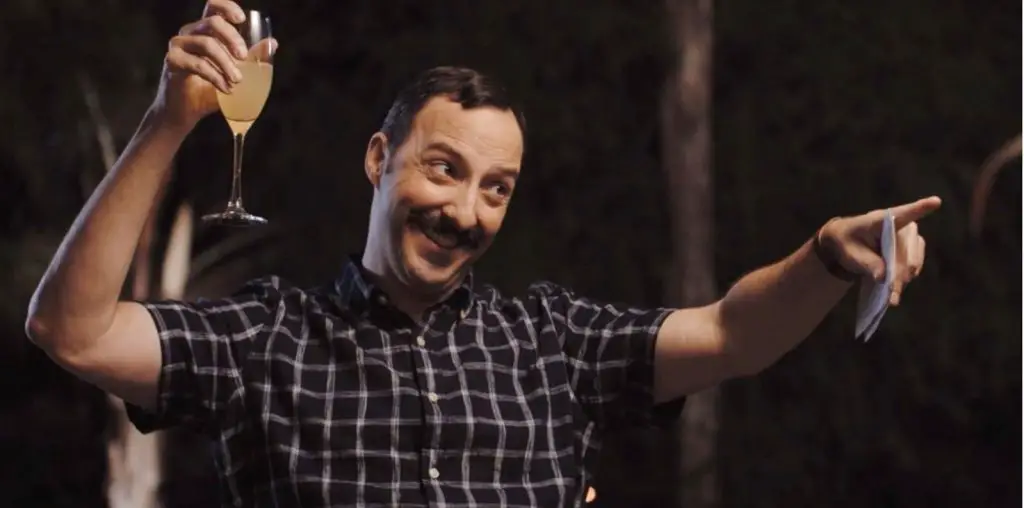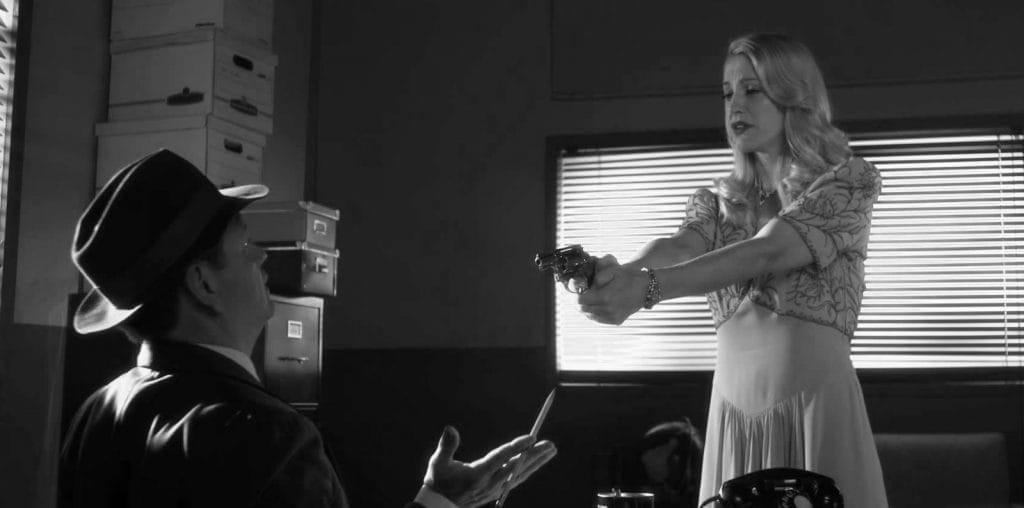
I’m not what you would call a Diablo Cody fan, so I was fully prepared to rip on “Young Adult.” Had she written another catchphrase quirkfest, I would have had a field day. I have to give Diablo props (do you mind if I call you Diablo?) because “Young Adult” is about as far from “Juno” as one can get and still carry the Cody watermark. It’s an exploration of what happens to the most popular girl in high school once she leaves the monarchy and has to face the real world. It seems that being beautiful and marginally literate can only get you so far.
But isn’t this movie supposed to be a comedy? The laughs are few and far between in this cringingly realistic portrait of a sociopath. It’s almost a revenge fantasy, as an aging prom queen spirals headlong into a nervous breakdown. The performances are solid enough to keep you watching, but it’s not exactly a fun time at the movies.
Once again, Cody teams up with director Jason Reitman (“Juno,” “Up in the Air”) to tell the story of Mavis Gary (Charlize Theron, “Monster”), a 37-year-old ghostwriter for a once-popular teen lit series called Waverly Prep. Nursing an ever-present hangover, she slumps around her trashed apartment in her pajamas, trying to finish the last book. A birth announcement email from her high school ex, Buddy Slade (Patrick Wilson) prompts a trip back to her tiny hometown of Mercury, MN. She’s on a mission to rescue him from the domestic life she convinces herself he doesn’t want.
We have no reason to believe that this is anything other than an out-of-the-blue impulse. Apart from her book, one night stands and getting hammered, Mavis has nothing going on. She may not have even thought of Buddy in years. He just popped up in her in-box during a lull and she decided to use him as a procrastination tactic.
Once she hits town, Mavis heads straight for the local bar, where she encounters another former classmate, Matt Freehauf (Patton Oswalt, in his nerdy element). Though they were locker neighbors (aren’t they always), she doesn’t remember him at first. He was one of the little people in her vast kingdom. But he jogs her memory with his tale of woe as “The Hate Crime Guy.”
Matt was crippled by jocks in a horrible gay-bashing incident that earned national media attention until the press realized that it was a case of mistaken sexuality. Mavis makes light of his situation (“Could you walk any slower?”), constantly turning the conversation back to herself throughout their subsequent unlikely friendship. They get hammered on bourbon and a lonely Matt listens to Mavis concoct her delusional schemes to steal a politely oblivious Buddy away from his wife and daughter. Matt calls her out at every opportunity. He’s the only one who does so. But she ignores him, just as she ignores the more subtle signals from everyone else in town telling her she’s off base.
Theron does an incredible job with the role proving that she doesn’t need to wear prosthetics to play ugly. Mavis is simply not a good person. Beauty is power in high school and in certain metropolitan circles. But in a real town like Mercury, they don’t give a crap about fresh mani-pedis and silk blouses. Everyone regards Mavis with polite horror, and she takes their silence as a sign that they are buying her bullshit. Even her parents, whom she avoided until she ran into her mother on the street, are so tired of her shtick that, when she blurts out a true admission that she’s an alcoholic, they laugh it off as just another plea for attention.
Another actress with comparable beauty would have botched the role, playing it with one note. But Theron does so much with just one glare. We can see deep into where Mavis’ soul would be, if she had one. She speaks in platitudes, crediting destiny and true love for her actions. But she’s just saying and doing what she thinks a character in her books would do. She’s not just a bitch. She’s Dexter Morgan minus the bloody history and code.
Which leads me to my main issue with the film: Why should we care about Mavis? For the audience to have empathy for a wholly unlikeable person, you have to give them a motivation for being that way. Mavis’ parents are both still alive and seem perfectly normal. Mavis does reveal a small piece of baggage near the end of the film, but it’s pretty clear that she only brings it up to garner sympathy. It’s not something that’s been haunting her this whole time, making her do evil things. It’s just another manipulation card. Without proper motivation, you’re just watching a bad person do bad things.
In that case, some jokes are in order. There are a handful of truly humorous moments, but 99% of them belong to Patton Oswalt, and his character is not the focus of the film. Mavis would be friends with anybody with a bottle opener. The more interesting question is why Matt would hang out with Mavis. Sure it’s partly “Breakfast Club” curiosity and partly boredom. But she’s not exactly good company. She should be the unlikely buddy in a movie about “The Hate Crime Guy.”
Matt tells Mavis straight up that she’s being crazy and selfish. He attempts to give her a wakeup call with every interaction, but she keeps hitting the snooze bar. I hate to advocate for less movies with female protagonists, but if that’s what you’re going to do with them, they’re better off in small doses.
It’s not that sociopathic women can’t make appealing characters (see Baby Firefly in “The Devil’s Rejects”), it’s just that something needs to happen to them. Otherwise, what’s the point?
“Young Adult,” as it stands, is a slice-of-life piece about a beautiful lunatic who tries to ruin some lives, fails and carries on being loony. It’s an intriguing place to visit. But I wouldn’t want to live there.

